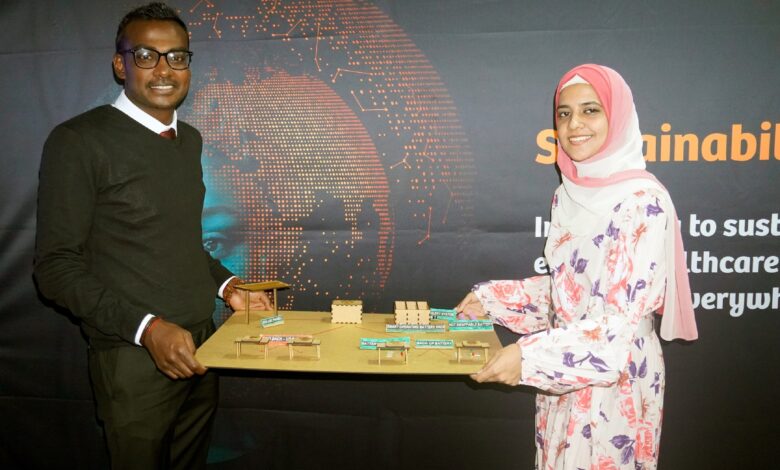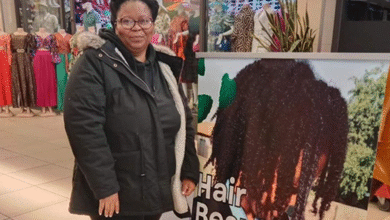Plan to reduce waiting time for hospital patients wins top prize in innovation contest

Improving quality of care for patients, reducing patient waiting time and developing a cheaper source of energy for rural hospitals, won top prize for a team of young innovators.
Twenty-one candidates from South Africa and other African countries participated in the Siemens Healthineers Innovation Think Tank (ITT) Certification Programme and they developed some interesting ideas to best solve South Africa’s health challenges.
Regent Business School is the first South African private higher education institution to have hosted the programme in partnership with Siemens Healthineers.
The theme of the programme was ‘Frugal Innovation Approaches to Healthcare Challenges in the African Healthcare Market’. Frugal innovation is necessary in resource-constrained environments like South Africa, to reduce the complexity and costs of developing solutions to problems.
Participants were exposed to the voices of key opinion leaders in the healthcare industry, highlighting the most pressing healthcare challenges, and were mentored through the innovation think tank methodology developed by Professor Sultan Haider of Siemens Healthineers to generate feasible solutions to selected problem areas.
Dr Nivisha Parag, Head of School for Healthcare Management Studies at Regent Business School in Durban thanked participants for stepping out of their comfort zones to learn about healthcare ecosystems and grab the opportunities to make a difference through the teachings of this phenomenal programme.
“The programme culminated with enthusiasm for an exciting journey ahead with further opportunities for Regent Business School to engage with the Siemens Healthineers ITT team.
“Ideas that were derived from this programme may be taken forward by participants, interested stakeholders, and in conjunction with Regent Business School, by going through further evaluation and testing processes required in the product and technology development space.
“Project details remain the intellectual property of the participants, until such time further developments are underway. Participants generated a diverse array of ideas, from information technology solutions to those aimed at managing the frequent power outages in the country, all in an effort to improve care delivery, patient experiences, or reduce costs of healthcare,” she said.
The winning team included Sameshin Reddy, a pharmacist supervisor at Prince Mshiyeni Hospital; Maria Ghafoor, student at Regent Business School; and Divine Maraizu, Health Science student in Nigeria.
Their ideas were aimed at improving quality of care and reducing patient waiting time. They also developed an idea to have a cost-effective alternative source of energy that will assist rural hospitals during a power outage.
Reddy said winning is just the cherry on top and a result of the hard work that the team has done.
“I always had a passion for innovation and was extremely grateful to have joined the programme. Thank you to Siemens Healthineers and Regent Business School for constantly providing support and encouragement throughout the programme,” he said.
Ghafoor said that she was surprised her team won first place.
“This opportunity will open up more doors for the team to take the project to the next level and also take it to global innovation challenge competitions where investors can see the value of the project and that there is a need for it in South Africa,” she said.
The team in second place consisted of Zakia Salod, a PhD Public Health student at University of KwaZulu-Natal; Julius Krieg, Master of Science student at University of Erlangen-Nuremberg in Germany and a qualified physicist and medical expert; and Sizwe Madikizela, iLeadLAB technician at Regent Business School in Durban.
They developed a mechanical laboratory solution to avert the need for energy consumption during specimen processing, as well as enhancements to animal -based diagnostics for diseases such as tuberculosis.
Krieg said the team would like to get the idea out in the world which can be implemented with the help of government and combining frugal innovation.
The team ranked third consisted of Khetan Ramkisson, a physiotherapist in Durban; Kerry Merisse Horwood, a BCom student at Regent Business School; Nomali Zuma, a Clinal Technician at Busamed Hillcrest Private Hospital and Dr Shahiem Patel, Head of School: Commerce and Management at Regent Business School.
They developed inventions of two mobile applications to improve healthcare services.
Ramkisson said other parts of the country need to be developed for this mobile application to kick off.
“I would love to develop this mobile application in South Africa. However, there are many risks and safety issue concerns within the country.
“I have been using a mobile application for my personal professional capacity for 17 months and it has worked well. When extended to greater areas of South Africa it becomes more profitable,” he said.


